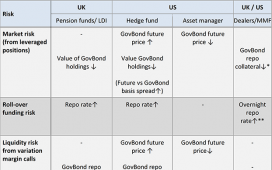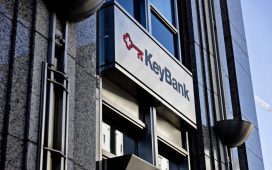Unlock the Editor’s Digest for free
Roula Khalaf, Editor of the FT, selects her favourite stories in this weekly newsletter.
Goldman Sachs has reminded us what it does best, even if that may not get the pulses of its shareholders racing. On Monday, the investment bank reported earnings that were sharply up relative to the first quarter of 2023. Investment banking revenues leapt by a third, as did earnings per share, reflecting reawakening capital and deal markets.
But the surprise came in Goldman’s fixed income trading group, which includes currencies and commodities. Its revenues were up a tenth, against previous expectations of a decline.
In fact, the FICC group profited most from its lending activities to hedge funds and the like. There were some charges to its profits as it exited its consumer banking activities, but that excursion already seems like a distant memory.
The overall results were good enough that Goldman’s group annualised return on equity for the quarter reached 15 per cent on the strength of an 18 per cent RoE in the banking and markets group.
Chief executive David Solomon on the call reminded analysts that Goldman’s own targets for RoE for that segment remained in the mid-teens “through the cycle”. Goldman’s share price, even after this strong quarter, was only up 3 per cent.
Goldman’s dominance and innovation in institutional securities is probably underrated, given some tough competition and seemingly persistent employee turnover. But its businesses tend to be erratic performers, if highly profitable. Shareholders are reluctant to reward these areas with the highest valuation multiples. Goldman’s price to book ratio is now at 1.25x, below those of JPMorgan and Morgan Stanley.
Though it has left consumer banking, elsewhere Goldman has tried to build a massive wealth and asset management business that brings in steady fees. Goldman assets under supervision have reached nearly $3tn.
For now, Goldman can only promise to focus on boosting its earnings, hoping that a better valuation will follow. Deals and underwriting flow can only improve as financial sponsor firms — private equity — will eventually need to distribute cash back to their limited partners.
Goldman also emphasised that the AI revolution was a long-term boost as all clients should need to raise plenty capital over years to take advantage of the revolutionary opportunity the technology brings.
When its FICC revenues soften, as they inevitably will, some other part of Goldman will probably pick up the slack. That kind of diversification is a strength even if institutional shareholders have yet to applaud this. After a difficult couple of years at Goldman, the firm finally feels comfortable in its own skin.




